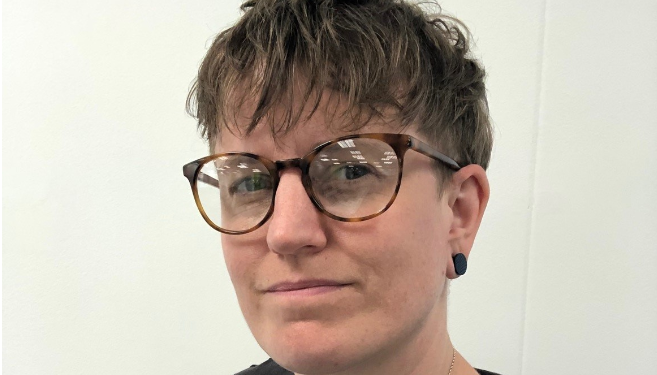Emma Blackmore, account executive for income protection at MetLife, speaks to Health & Protection about being misgendered, the importance of more visible members of the LGBTQIA+ community in upper management and not quite being able to be her ‘best gayself’ with clients.
What have been your own experiences with regards to attitudes towards LGBT communities in the sector?
I’ve been working in financial services for 10 years and I’ve been lucky enough to enter at a time and place – working predominantly in Brighton surely helps – where homophobic, transphobic or the locker-room derogatory comments have become outdated.
Therefore, they haven’t been on my radar, and I’ve been in the wonderful position of never experiencing conflict or harassment based on my sexuality – at work, that is.
I’ve never felt within the workplace, specifically among colleagues, that my sexuality has negatively impacted my professional relationships, nor influenced my career progression.
I have found that as a woman, many clients over the years have been less inclined to take my skills and advice seriously – as if women can’t possibly make serious financial decisions.
If anything, having more obvious masculine traits and a deep gravelly voice has perhaps aided me here, with some clients mistaking me for a man. I will say that I have never corrected any clients who have misgendered me, for fear of making them uncomfortable nor anyone who has assumed I have a husband.
How have attitudes evolved in the sector?
In the last few years, it seems that companies are more willing to put their name to events like Pride and get involved with the work of organisations like Interbank and Stonewall.
Society’s increased awareness of the trans and non-binary community in recent years has certainly translated into my workplace, with small gestures like email signatures including people’s preferred pronouns helping the trans and non-binary community feel safer and more reflected.
But there is so much more work to be done, of course, not least in representation.
What is the sector doing well and where does it need to up its game?
Although steps have been made to move away from heteronormative language or binary and exclusionary pronouns, we need more inclusive language in all internal and external communications and more consistency across the whole industry.
Furthermore, I’d like to see more visible members of the LGBTQIA+ community in upper management, more role models, and mentoring programmes for LGBTQIA+ employees and anti-discrimination policies and procedures with an intersectional perspective.
This isn’t sector specific – it’s more of an overall cultural shift that is required – but I’d love to feel safe in correcting clients when they refer to my husband or similar things.
Despite being a probably overly confident person, I am yet to find my comfort ground in being my best gay self with clients, particularly now that I am working with people of a far wider variety of cultures and beliefs.
Building trusting relationships has always been at the heart of what I do, and it feels unnatural to hold back from referring to my children and partner, particularly when my shared experiences are so relevant to our products and services.
Do you feel encouraged and enabled to bring your whole self to work?
Within Metlife, in additional to my everyday role, I am a part of a Diversity, Equality and Inclusion Committee and am actively encouraged to have a prominent voice within our work community.
I’ve never been a shrinking violet, and as such I bring my whole self and then some to every workplace. I’ve been welcomed with open arms and never felt the need to hide anything from colleagues.
I am very much aware of my privileges and grateful to all those who have endured before me and paved the way for me to feel secure.






